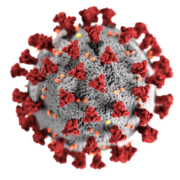KYIV, Ukraine (AP) — Ukrainian President Volodymyr Zelenskyy said that he has held further discussions with French President Emmanuel Macron about the possibility of Western troops deploying in Ukraine to safeguard any peace deal ending the nearly three-year war with Russia.
Zelenskyy’s disclosure came before an official visit to Kyiv on Tuesday by German Defense Minister Boris Pistorius. He arrived in Kyiv on an unannounced visit following a meeting in Warsaw on Monday with his counterparts from France, the United Kingdom, Italy and Poland.
Germany and the four other countries are Europe’s five top military spenders.
Pistorius told German news agency dpa that his visit to Kyiv aims to underscore Germany’s strong support for Ukraine at a time when U.S. President-elect Donald Trump’s term beginning next week looks set to bring deep changes to Washington’s policy on the war.
Pistorius said that his visit “is a signal that Germany, as the biggest NATO country in Europe, stands by Ukraine — not alone, but with the group of five and many other allies.”
Trump has criticized the cost of the war for U.S. taxpayers through major military aid packages for Ukraine, and vowed to bring the conflict to a swift end. He also has made it clear that he wants to shift more of the Ukraine burden onto Europe.
Macron prompted an outcry from other leaders, and he appeared isolated on the European stage, after his remarks almost a year ago floated the possibility of putting Western troops in Ukraine.
Pistorius told reporters in Kyiv that the Warsaw meeting didn’t discuss Macron’s remarks about troop deployments.
Zelenskyy has said that Ukraine needs security guarantees to bolster any peace agreement — an issue he said late Monday that he discussed with the French leader.
“As one of these guarantees, we discussed the French initiative to deploy military contingents in Ukraine,” Zelenskyy said. “We considered practical steps for its implementation, possible expansion and involvement of other countries in this process.”
Potentially sending European troops as peacekeepers to Ukraine is fraught with risk. Such a move may not deter Russia from attacking Ukraine again in the future, which is the fear of Ukrainian officials, and could drag European countries into a direct confrontation with Moscow. That, in turn, could pull NATO — including the United States — into a conflict.
Russia’s bigger army has largely pinned Ukrainian forces on the defensive along the around 1,000-kilometer (600-mile) front line. Ukraine’s defenses are creaking in the eastern Donetsk region amid a Russian onslaught.
Zelenskyy said Ukraine has more than 100 brigades on the battlefield and each of them requires equipment replenishment before increasing the number of troops through a wider mobilization.
Ukraine has built up a domestic arsenal of long-range drones and missiles that it uses to hit targets on Russian soil far behind the front line. The targets are usually infrastructure that supports the Russian war effort, such as arms depots, oil refineries and manufacturing plants.
Two industrial facilities in Russia’s western Saratov region were damaged after a “massive” Ukrainian drone attack, regional Gov. Roman Busargin said Tuesday.
He claimed that Russian air defenses downed “a large number” of drones and said that there were no casualties, offering no further details.
Ukrainian officials said the Saratov attack, which stretched over several days, “reduced the capabilities of (Russia’s) strategic aviation.”
Tanks holding aviation fuel for Tu-160 bombers caught fire at the Engels military airfield in Saratov, according to a statement on social media by the 14th separate regiment of the Unmanned Systems Forces of Ukraine.
Also, the Russian Defense Ministry accused Ukraine of firing six U.S.-made ATACMS missiles, six U.K.-supplied Storm Shadow missiles and 31 drones at Russia’s Bryansk region on the border with Ukraine.
All the missiles and drones were shot down by air defense systems, the ministry claimed in an online statement, but it said that the attack “will not go unanswered.”
Russia has repeatedly threatened Ukraine and the West with retaliation for the use of Western-supplied longer-range weapons to strike Russian soil.








